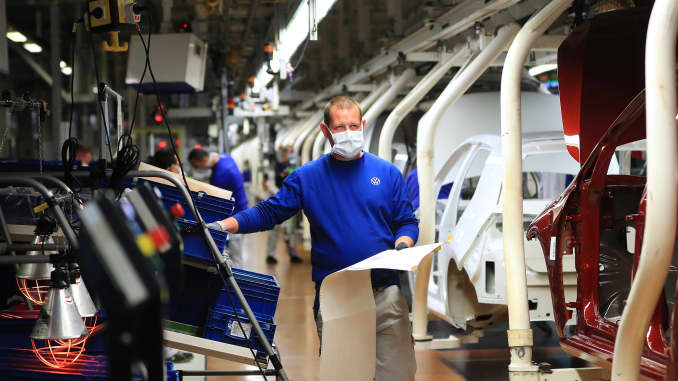Silicon chips are the lifeblood of the tech-obsessed world we live in, but today they’re in short supply.
2021.06.07 / By admin
Demand for these chips, or semiconductors, has soared during the coronavirus pandemic as people snapped up games consoles, laptops and TVs to help get through lockdowns. Now, many of these products — including certain Chromebook laptops and next-generation consoles like the Xbox Series X and the PlayStation 5 — are sold out, or subject to lengthy shipping times.
It’s just one of a number of factors that has driven demand for semiconductors, but as supply struggles to keep up, it’s the chip-reliant car industry that has been hit especially hard.
“ We have seen in the short term, the automotive industry has been very adversely affected,” Bryce Johnstone, director of automotive segment marketing at chip designer Imagination Technologies, told CNBC via email. “This stems from their just-in-time production methodology and their incredibly complicated supply chains.”
Carmakers uses semiconductors in everything from power steering and brake sensors, to entertainment systems and parking cameras. The smarter cars get, the more chips they use.
“If the chip that powers the in-car dials or automatic braking are delayed, then so will the rest of the vehicle,” said Johnstone.
Closed car plants
U.S. car giant General Motors announced last Wednesday that it is shutting three plants and slowing production at a fourth due to the semiconductor shortage. The Detroit car manufacturer said it could miss its 2021 targets as a result.
“Despite our mitigation efforts, the semiconductor shortage will impact GM production in 2021,” a company spokesman said in a statement.
“Semiconductor supply for the global auto industry remains very fluid,” they added. “Our supply chain organization is working closely with our supply base to find solutions for our suppliers’ semiconductor requirements and to mitigate impacts on GM.”


